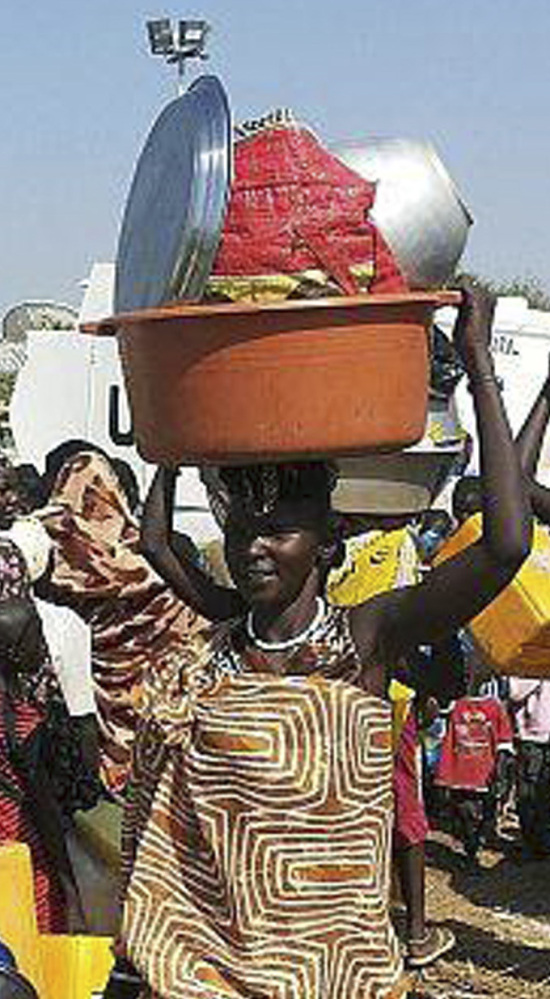JUBA, South Sudan — Armed rebels were said to be in control of some of South Sudan’s oil fields Friday, raising questions of how long the country’s oil will flow and whether Sudan could enter the conflict.
President Salva Kiir implored his country to turn away from ethnic violence and met Friday with foreign ministers from neighboring states, including Kenya and Ethiopia, who flew into Juba, the capital, to help calm tensions after a week of ethnic strife that is estimated to have killed hundreds.
Kiir did not speak publicly, but the government’s Twitter feed attributed this quote to him: “Those who may want to take the law into their hands, the long arm of the government will get them.”
Fighting continued to spread on Friday in two states, Unity – an oil area – and Jonglei, as armed groups opposed to the nation’s military emerged, said a South Sudan expert communicating with combatants and U.N. officials in strife-torn regions outside the capital.
“We’ve seen the conflict expand quite rapidly and quite dramatically in recent days. We’ve seen the emergence of different armed groups under different commands, and we’ve seen the former vice president say he’s not interested in talks that don’t end in Salva Kiir stepping down,” said Casie Copeland, South Sudan analyst for the International Crisis Group. She added that the arrival of regional foreign ministers in Juba “is genuinely a good thing.”
Armed opposition groups appeared to be in control of some oil fields in Unity state, she said. South Sudan’s oil fields have historically been a target for rebel movements.
“The potential for oil wealth to exacerbate the current power struggle should not be underestimated,” said Emma Vickers of Global Witness, a London-based group that investigates and campaigns to prevent natural resource-related conflict. “If rebel forces were to capture the oil fields, they could effectively hold the government to ransom.”
The United Nations said Friday that 35,000 people continue to seek refuge at U.N. bases in three locations across the country, including 20,000 at two bases in the capital.
The U.S. Embassy had a fifth emergency evacuation flight on Friday to move Americans out of the country. British, German and Dutch planes were also scheduled to fly out. Hundreds of foreigners, including aid workers, have hurriedly left South Sudan this week at the urging of foreign embassies concerned about the possibility of out-of-control violence.
Send questions/comments to the editors.



Success. Please wait for the page to reload. If the page does not reload within 5 seconds, please refresh the page.
Enter your email and password to access comments.
Hi, to comment on stories you must . This profile is in addition to your subscription and website login.
Already have a commenting profile? .
Invalid username/password.
Please check your email to confirm and complete your registration.
Only subscribers are eligible to post comments. Please subscribe or login first for digital access. Here’s why.
Use the form below to reset your password. When you've submitted your account email, we will send an email with a reset code.